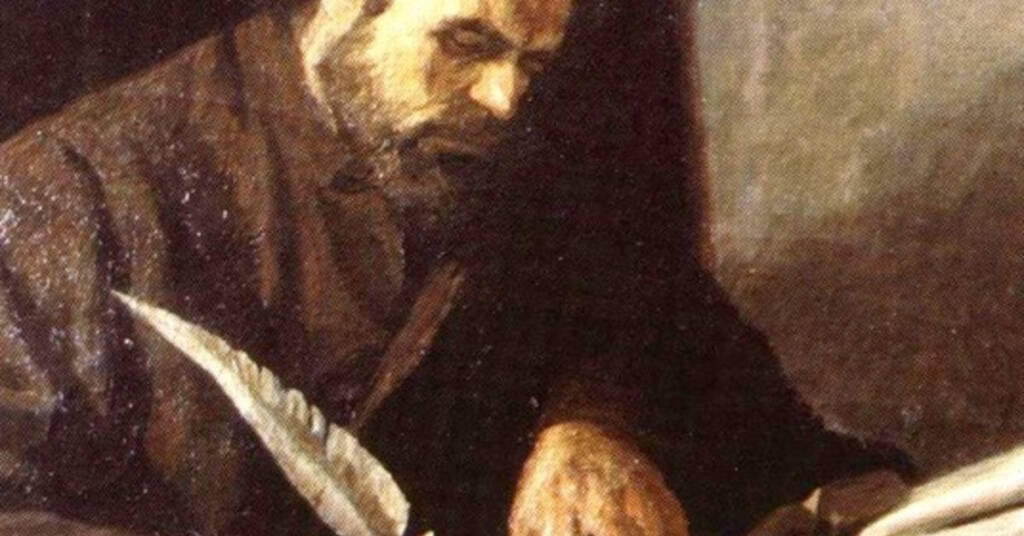
The alarm clocks: a delightful relay of Curiosity

Or about the fate of the know-and-able in a confused country
We are asleep, someone has to wake us up or someone has to keep us awake
First of November – the Day of People's Awakeners, it's day, in which we, the living, we dispel the darkness of the past, to repeat in prayerful whispers their vows, to see their images in a halo of oblivion. As a result of the work of the holy brothers Cyril and Methodius and their disciples, "Slavic Bulgarian History" was born. Driven by a thirst for knowledge, as well as heroic worshipers of native liberty, strong-spirited educators of ours - Sophronius - begin to line up, Partriarch Euthymius, Peter Beron, Marin Drinov, Ivan Vazov and many others" - writes V. Stoyanov in the newspaper "Stremlenie", number 15, 1922 G.
The combination of emotion and knowledge, like our "Curiosity" and "Jealousy", Serbian "Curiosity" and Greek "Epistemophilia", is the engine of human progress. Curiosity, as the Latin sapere is aude (to have the courage to be wise) for the European Enlightenment, is the motto of the Bulgarian Revival. Echo, which does not echo in the palaces of 45 + 33 the politicians in Bulgaria.
Love the reader, Paisii Hilendarski completed "Slavic Bulgarian History" in 1762 G. in the Zograf Monastery. Immanuel Kant wrote “What is Enlightenment?" on 30 September 1784 G. to Konigsberg, Prussia. And even earlier, through 1668 G., Petar Bogdan wrote "On the Antiquity of the Fatherland and Bulgarian Things".
The awake person - to crystallize the knowledge in you, to express your thoughts, to be free. Strive to excel in everything, what you do - ancient Greek arete, which the awakeners have brought to us in our paideya (paideia) - pedagogy. They - from King Simeon the Great until today - are our teachers, “these, who lead the children' (Greek, paidos – child, ago - I'm driving; in ancient Greece the servant took the child to school). And in the root of the English word education (education) has “leadership” – from Latin educere – “to bring out, what has it" (to reveal the student's abilities), where ducere means "to lead"; in our context - "to wake". Therefore, teachers are the "servants" of pupils and students. And guides, wakers of the nation.
Thanks to priority investment in curiosity, Singapore's economic tigers were born, Japan, South Korea and China. Through 2010 G. Israeli President Shimon Peres advised us: "Don't go to the banks, the truth is in the science labs - that's where great things are done. Let your people take the lead. As we do.
Israel's wealth does not come from the banks, it comes from the people. They can build a great country from a small territory" - sounds like poetry, made a reality in Israel.
Which MP, minister and president outlined the problems of modern Bulgaria with such depth? Therefore, in our economy, tigers are only in the ring in the "Balkanski" circus and in the zoological gardens in Sofia, Burgas and Varna. Although, we can boast of contributions in cultural zoology - a Bulgarian butterfly, which distorts a two-meter platform in the center of Paris - a bronze sculpture by Zhivko Zhivkov, known as JIVKO worldwide. His butterfly, like that of Edward Lorenz, whose "flapping of wings in Brazil could cause a tornado in Texas", nor learn, that the final outcome of an event depends on "small necessary changes" at the beginning. This means allowing awakeners to freely flap their wings of curiosity. Then it will go to kindergartens, the schools, the universities and after them – how many other places, where one can truly forever fall in love with Knowledge.
Multiplied in the nation, it means knowing-and-able, skilled people - enough with these "elites", "leaders" and "legends"! Such didactics builds individual and collective knowledge - the critical mass of knowledgeable people, capable of electing enlightened and worthy politicians, to work for healthcare, the education, the science, Christian values, for a higher standard and quality of life for Bulgarians.
We are asleep, someone has to wake us up or someone has to keep us awake, so we don't fall asleep? Alarm clocks, weekdays, awakening, fell asleep? Questions not only about the Bulgarian mentality and culture, but also for our appreciation and respect for the awakeners - teachers, poets, writers, scientists... In the native house, the kindergarten, the school, at the university one learns everywhere from them - a delightful relay of curiosity. Alarm Clock Day reminds us not to let it fall.
O, times, o, mores! - why then do we allow the dead to be humiliated?, and the living wakers? While there are such humiliations, some of them died: Hristo Fotev, Konstantin Pavlov, Stoyan Tsanev and Anton Donchev. Many of the living alarm clocks: Boris Hristov, Josko Sirchedjiev, Stefan Tsanev, Thomas Tomov, Dimitri Ivanov, Teodosiy Teodosiev, Milko Bozhkov and Mihail Mutafov are now recluses, escaped from the vanity and arrogance of the big cities. Other vigilant Bulgarians emigrated from the miserable conditions, which the state provides to their talents. Fate of know-and-able people in a confused country. To be able to do something worthwhile in Bulgaria, you expend much more intellectual and emotional energy, than your colleagues in settled countries. You get recognition there, here – a stroke, heart attack or depression.
And imperceptibly, another Day of the Wakers arrives. And the imperative of the question:
Where are those who were before us? (Where are these?, who were before us?)
Where are the alarm clocks?, which were
before us and these, who are among us?


